|
Genres, Themes, Actors, and Directors:
- Billy Wilder Films
- Jean Arthur Films
- Love Triangle
- Marlene Dietrich Films
- Military
- Romantic Comedy
- World War II
Review:
Billy Wilder and Charles Brackett’s long-time collaboration included co-authoring (with Richard L. Breen) this satirical romantic comedy about the inevitable corruption that emerged in post-WWII Germany as Americans attempted to help rebuild the nation while war-weary G.I.s were equally eager to have some fun. The engaging script pulls no punches in showing countless examples of what was really happening in Berlin: while being driven through town, Arthur sees not only a ravaged cityscape (nearly half a million buildings were destroyed over the course of 400 Allied bombing raids), but GIs cavorting with frauleins on just about every park bench, and a young mother pushing a pram with American flags flying on either side:
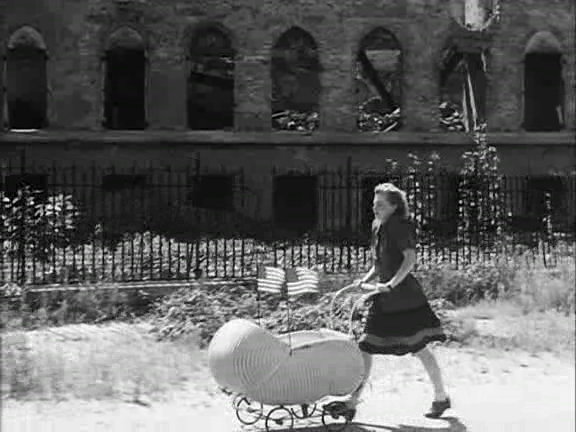
Once out of the car, Arthur herself is quickly accosted by two GIs on bicycles who use all their techniques on her (offering candy bars, etc.).
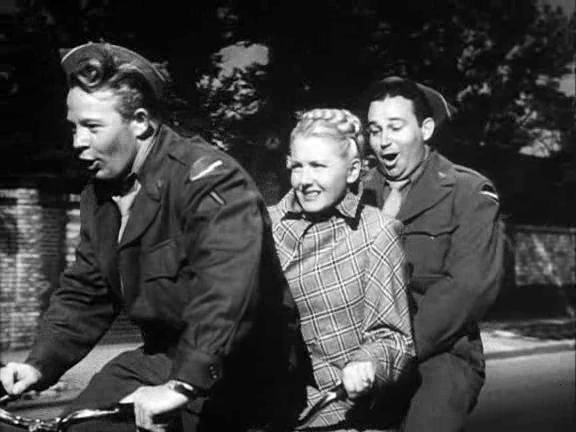
At the heart of the story, however, is Dietrich — as radiant as ever at 46, singing several sultry songs and boldly inhabiting a Nazi-sympathizing opportunist completely opposite her real-life stance as an anti-Fascist activist.
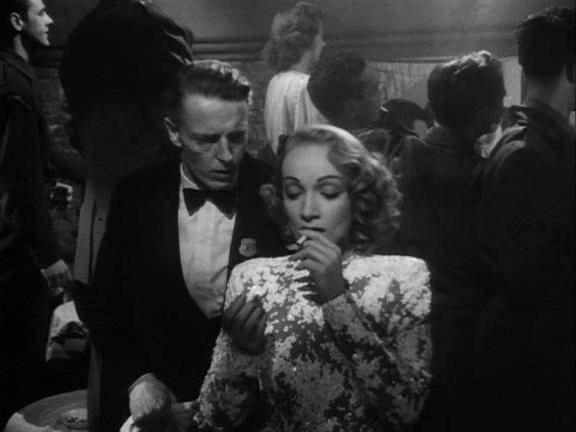
Lund fills the bill well as the central male love interest, and Charles Lang’s cinematography nicely captures the shadowy nature of an occupied city. This one remains worth a look.
Redeeming Qualities and Moments:
- Fine performances by the leads
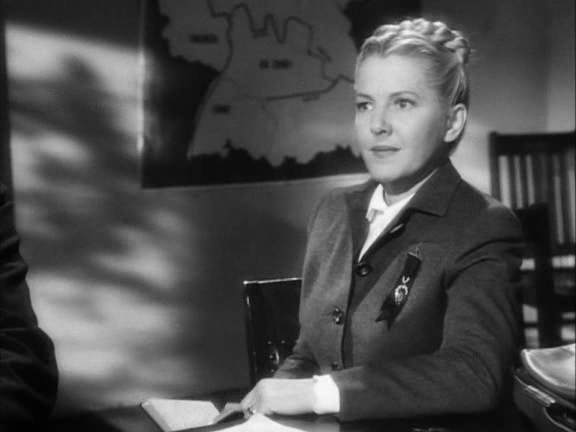
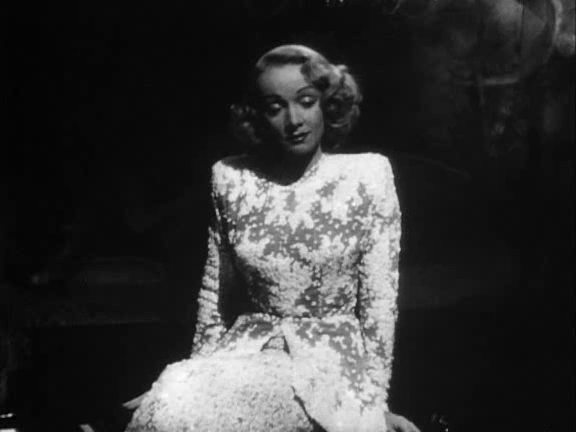
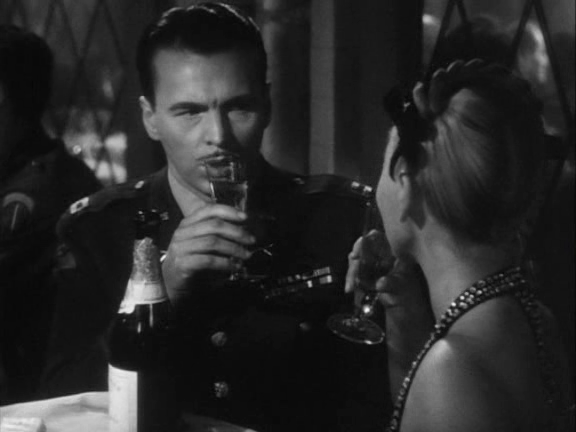
- Atmospheric cinematography and sets
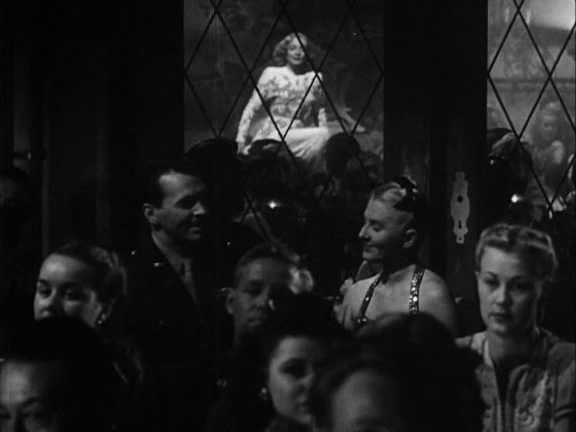
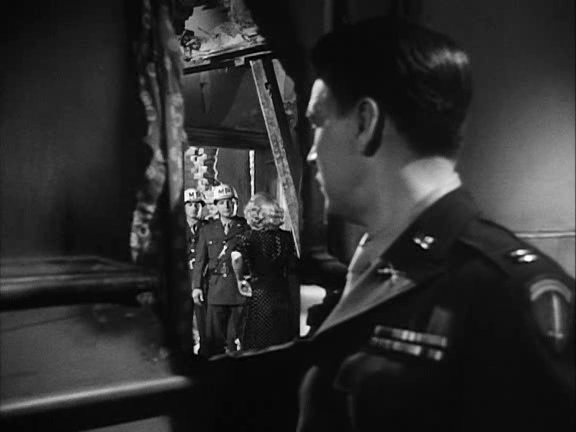
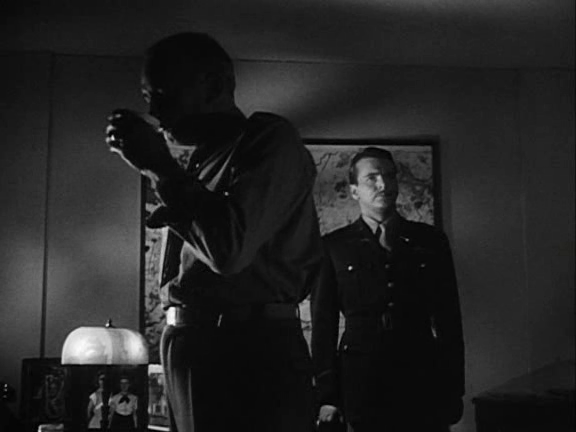
- A bitingly satirical script
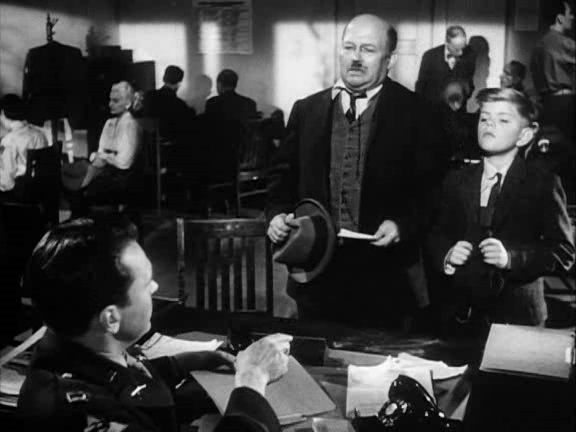
Must See?
Yes, as a still-enjoyable satire.
Categories
Links:
|
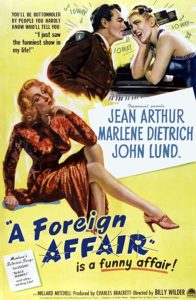










One thought on “Foreign Affair, A (1948)”
Agreed; must-see, as a significant film in Wilder’s oeuvre. As per my post in ‘The ’40s-’50s in Film’ (fb):
“It was like handing the village drunk a glass of water.”
‘A Foreign Affair’ (1948): Two years before going pitch black with ‘Sunset Boulevard’, Billy Wilder co-wrote (with Charles Brackett and the equally talented Richard Breen) this unique and decidedly shady love triangle tale – with Marlene Dietrich and Jean Arthur competing for the attention of John Lund. According to Wikipedia, “[w]hile serving with the United States Army in Germany during World War II, Wilder was promised government assistance if he made a film about Allied-occupied Germany, and he took advantage of the offer by developing this film.”
Wilder sweet-talked Arthur out of retirement to play a congresswoman from Iowa (a prig so, naturally, a Republican) who is sent to post-war Berlin as a part of a committee checking up on morale among the Occupation troops. Arthur’s Phoebe (sort of an American Ninotchka) is shocked when she slowly realizes that not only is considerable amorous fraternizing going on (gulp!) but the city also has something of an after-dark underbelly (double gulp!).
Dietrich’s Erika is the main attraction (of course) in the verboten night life. (At first, anti-fascist Dietrich was appalled by the idea of playing a woman involved with Nazis but Wilder promised her some wonderful songs by the prolific Friedrich Hollaender – who would go on to compose the score for ‘The 5,000 Fingers of Dr. T’… and Dietrich’s rendition of ‘Black Market’ alone is downright haunting.) For various reasons, Erika is indebted to Army Captain Pringle (Lund) – but their affair is endangered by Arthur. To get Arthur off the scent, Lund pretends to fall in love with her.
It gets even more complicated from there – surprisingly so ultimately. What makes this love story / comedy refreshing is its unexpected weight. The screenplay has real muscle. It’s not just laughs (they’re there but they’re mostly subtle) – there is also a distinct bite. ~ all of which is heightened by the rich black & white texture provided by DP Charles Lang.
This is a strong Wilder film that tends to be overlooked. So… have a look.